Report on the 3rd meeting of the RSA research network on Sustainability Transitions in the Coastal Zone
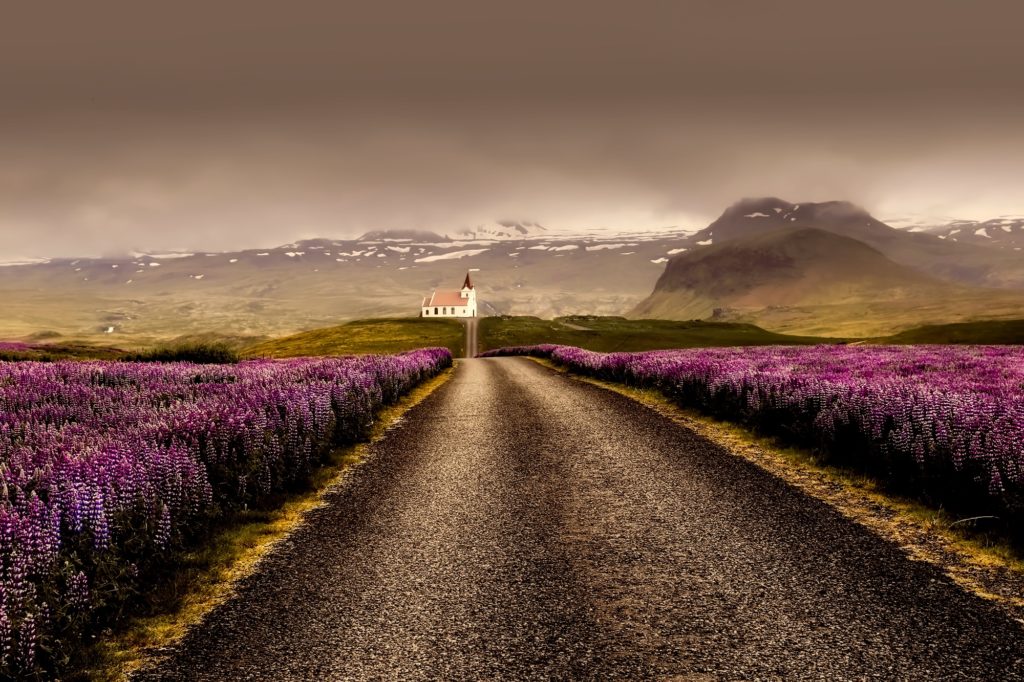
By Patrick Heidkamp (Southern Connecticut State University, CT, USA), John Morrissey (Mary Immaculate College, Ireland and Liverpool John Moores University, UK) and Catherine Chambers (University Centre of the Westfjords, Iceland)
About the RSA research network on Sustainability Transitions in the Coastal Zone
Coastal areas, despite only occupying a relatively small percentage of the Earth’s land-surface, provide more than one third of the globe’s value of ecosystem services. Coastal areas are also increasingly at risk due to changing environmental conditions as well as human development pressures. These factors, coupled with the large-scale failure of contemporary governance approaches to direct development to more sustainable outcomes, present stark challenges for coastal stakeholders. Nowhere is this clearer than in contested coastal zones, where intense demand on coastal resources sits uneasily with stewardship, habitat protection and natural resource maintenance imperatives.
It is the aim of this research network to interrogate sustainability challenges in the coastal zone from the perspective of the emerging field of socio-technical transitions (SST) research. As described by Hansen & Coenen (2015) sustainability transitions are geographical processes, which rather than being universal and pervasive in nature, happen in situated, particular places and as Truffer and Coenen (2012) point out, should be analysed in a regional context. However, much contemporary discussion of transition is either aspatial or based on implicit assumptions about spatial homogeneity, with comparatively little attention to how policy proposals will influence current patterns of uneven development (Bridge et al. 2013).
About Skálanes, East Iceland
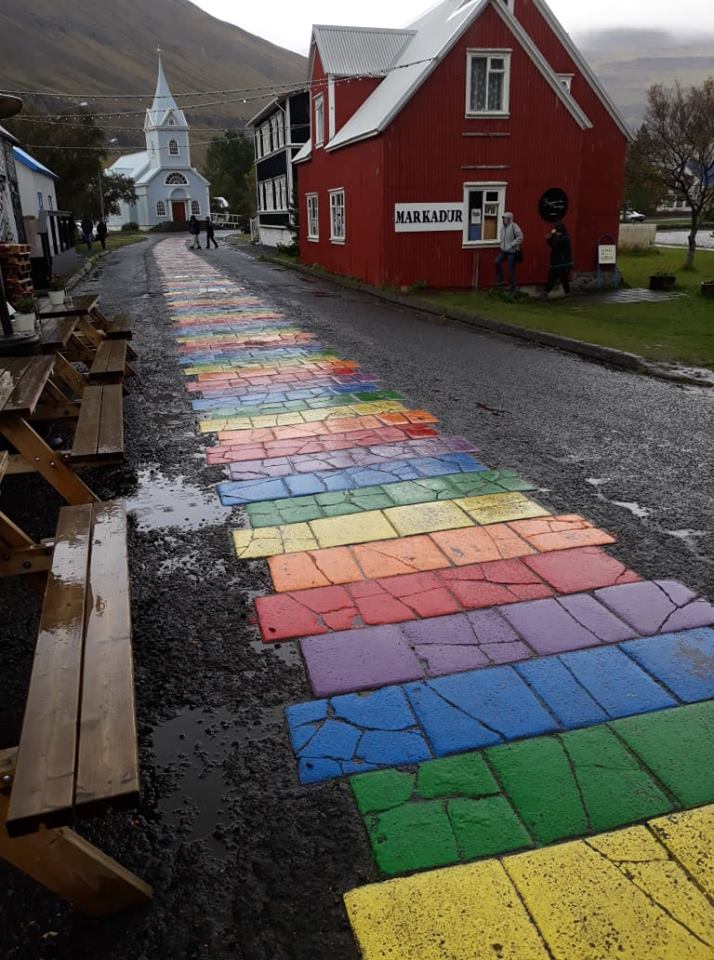
Skálanes nature and heritage centre is situated in a beautifully restored Icelandic farmhouse set in its own nature reserve at the mouth of Seyðisfjörður East- Iceland. Dramatic snow-capped mountains, vast sea cliffs, secluded shoreline and coves and a vibrant bird colony make Skálanes a place for relaxation, research, contemplation and a different pace of life (for further information call 861 7008 or skalanes@skalanes.com).
About the workshop organized between September 13th and 15th, 2018 on the theme of Governance and Sustainability Citizenship in the Coastal Zone
Coastal zones represent a frontline in the battle for sustainability, as coastal communities face unprecedented economic challenges while coastal ecosystems are subject to overuse, loss of resilience and increased vulnerability. The move from top-down governance to a networked, co-owned model of governance will be explored for international coastal case-studies, with a view to developing understandings of best practice for coastal sustainability governance. Conceptualizations of coastal stakeholders as sustainability citizens, rather than resource consumers will inform the framing of contributions.
Attendees and Participants
- Cat Chambers; University Centre of the Westfjords, Iceland
- Elena Lebedef, University Centre of the Westfjords, Iceland
- Patrick Heidkamp; Southern Connecticut State University, USA
- Scott Graves; Southern Connecticut State University, USA
- Michaela Garland; Southern Connecticut State University, USA
- Stephen Axon; Southern Connecticut State University, USA
- Marcello Graziano; Central Michigan University, USA
- Mary Hartford; University of Connecticut, USA
- Brian Marks; Lousianna State University, USA
- Stephanie Weir, Heriot Watt University, UK
- Celine Germond-Duret, Liverpool John Moores University, UK
- John Morrissey, Mary Immaculate College, University of Limerick, Ireland
Field Trips
The workshop included two field trips—one walking fieldtrip of Seyðisfjörður focused on examining sustainability and resilience adaptations in a local context, and one driving field trip focused on regional manifestations of the Blue Economy in Iceland. The driving field trip was split into a tour of Iceland’s South Coast focused on the tourism industry, and a visit to Sauðárkrókur in the North to examine aspects of the fishing industry.
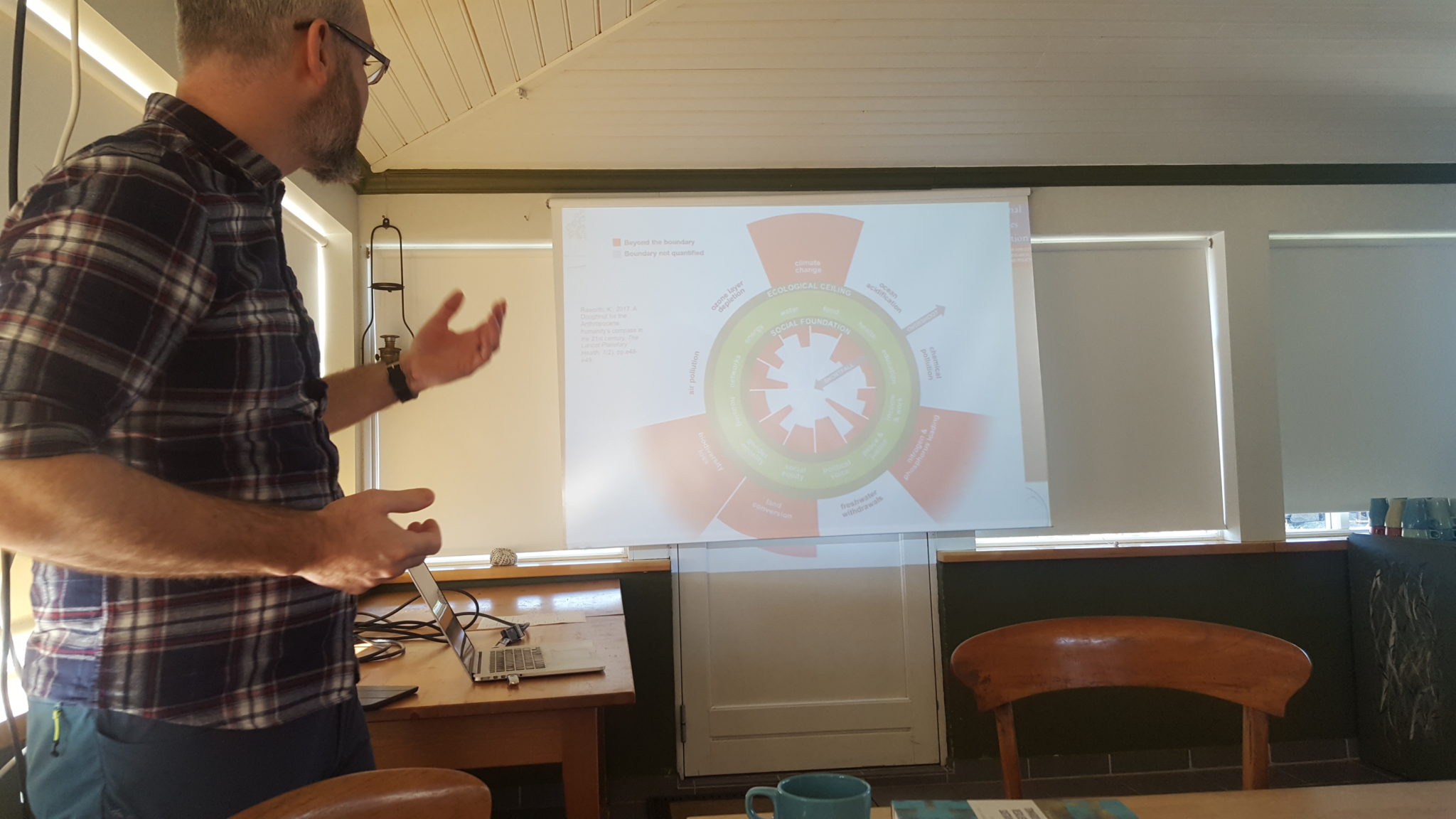
Presented Papers, Workshop Sessions & Themes:
- Framing the Blue Economy: Development, Sustainability and Placelessness. Celine Germond-Duret:
- Blue Energy: Governance, Marginality and Communities. Stephen Axon
- Contradictions of coastal citizenship and the ungovernability of the coastal zone. Brian Marks
Sustainability Transitions in the Coastal Zone
- Blue Economy and Regionalisms in the Coastal/Marine Zones: What’s next to overcome mismatches? Marcello Graziano
- Socioeconomic distribution of National Flood Insurance Program policy effects in the northeastern United States. Mary Hartford
- Power, Politics and Planning: Trends and Attitudes of Spatial Enclosure in Scottish Seas. Stephanie Weir
- Blue Economy in the Urban Sea: Challenges & Opportunities. Michaela Garland
- Youth and Newcomers in Icelandic Fisheries. Elena Lebedef
- Integrated Transitions In the Coastal Zone. Patrick Heidkamp & John Morrissey
Delegates discussed coastal transitions in a broad-ranging, inclusive and thought-provoking series of discussions and mini-workshops.
Figure 1: Thematic Summary of Discussion Points, 3rd Meeting of the RSA Research Network on Sustainability Transitions in the Coastal Zone
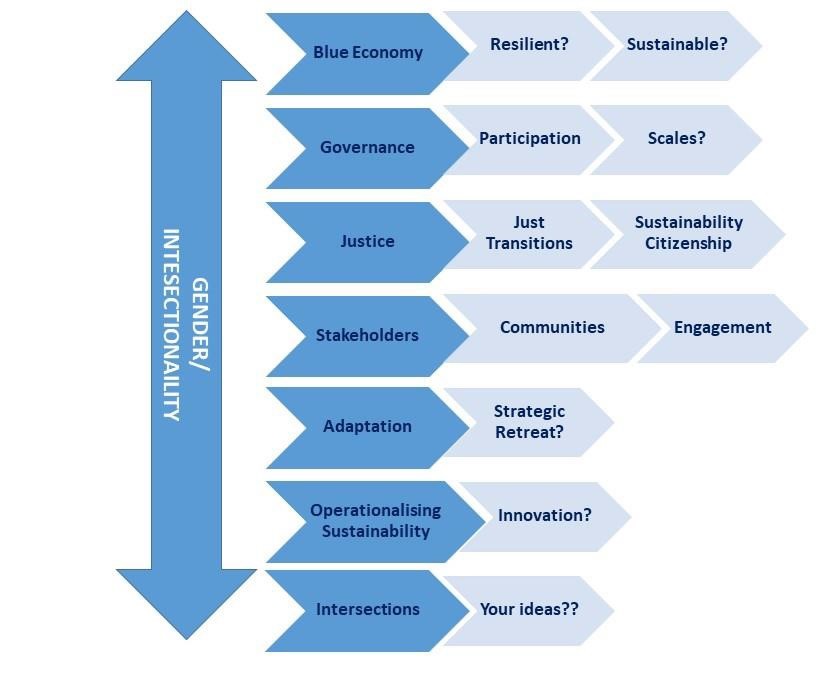
Themes of resilience and sustainability as related to blue economy activities, issues of governance and justice and cross-cutting themes of gender and intersectionality emerged as being of particular interest and in need of more in-depth, transdisciplinary and place-based research investigation (Figure 1). The scope for developing a practice-focused and case-study based edited volume to follow up on work published in Heidkamp, C. (Ed.), Morrissey, J. (Ed.). (2018). Towards Coastal Resilience and Sustainability. London, Routledge was discussed.
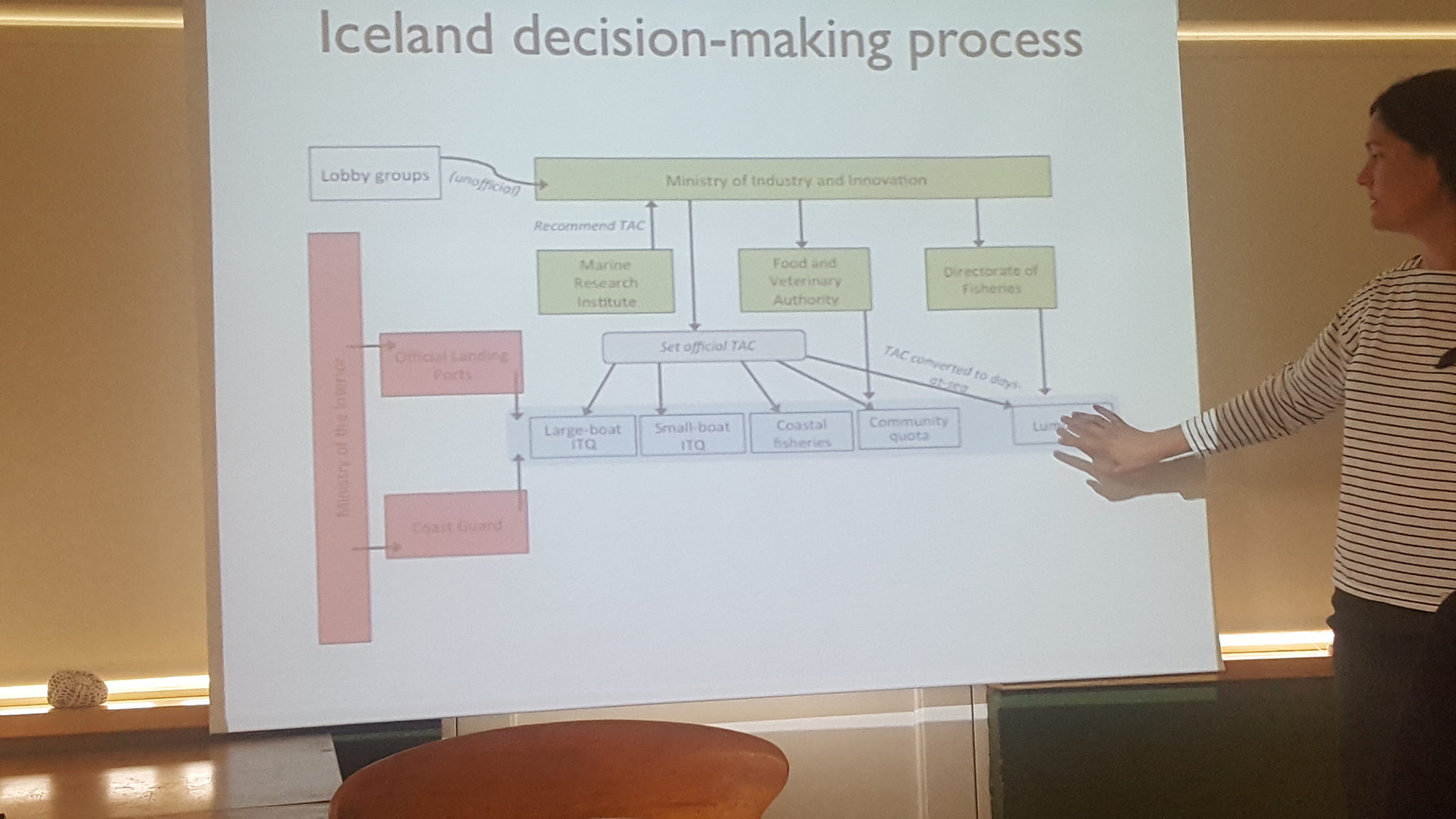
Next Meeting on the theme: Activating Real Coastal Transitions
Applying the transitions concepts of regime transformation and niche-innovation, ‘the case for change’ will be made, seeking to synthesise outcomes from all four workshops and identify transformation pathways for coastal regions. A regionally informed understanding of place and space will direct debate to consider problems of uneven transition, and risks of ‘negative transitions’, whereby existing contours of uneven development are exacerbated by transition initiatives. The research network aims to bring together scholars focused on—or interested in— the dynamics of coastal zones as economic spaces in order to catalyse a discourse on new coastal economies, addressing problems of lock-in and system inertia in the current regime and exploring means to foster radical innovation for sustainable and resilience based coastal development all while making sure the spatial dimension and the regional context are fully conceptualized.
Dates: Friday 12th April – Tuesday 16th April, 2019
Location: Mary Immaculate College, University of Limerick, Ireland (TBC)
Provisional Programme
- Friday 12th April: Book Launch Heidkamp, C. (Ed.), Morrissey, J. (Ed.). (2018). Towards Coastal Resilience and Sustainability. London, Routledge
- Saturday 13th April: Workshop Day 1, presentations
- Sunday 14th: Fieldtrip and Conference Dinner
- Monday 15th: Workshop Day 2: Break-out groups, discussion
- Tuesday 16th: Wrap-Up Sessions
Organisers
C. Patrick Heidkamp, Ph.D., Associate Professor, Department of the Environment, Geography & Marine Sciences, Southern Connecticut State University, CT, USA. Heidkampc1@southernct.edu
Dr. John Morrissey, Lecturer in Enviromental Geography, School of Natural Sciences and Psychology; Liverpool John Moores University, Liverpool, UK. J.E.Morrissey@ljmu.ac.uk
Dr. Catherine Chambers, Coastal and Marine Management Masters Program, University Centre of the Westfjords, Iceland. cat@uw.is